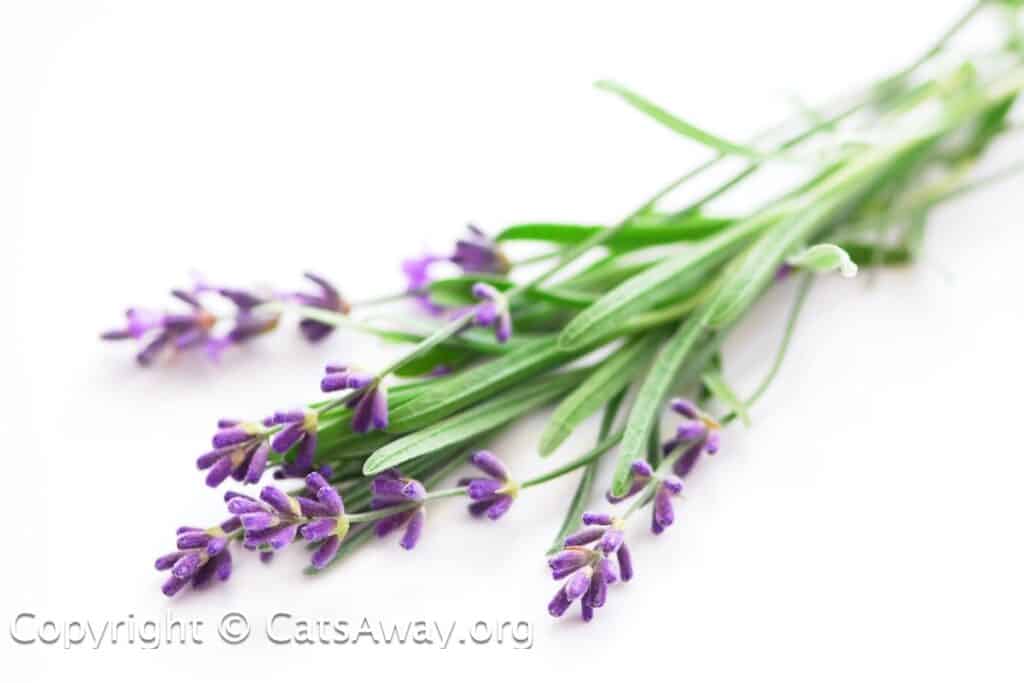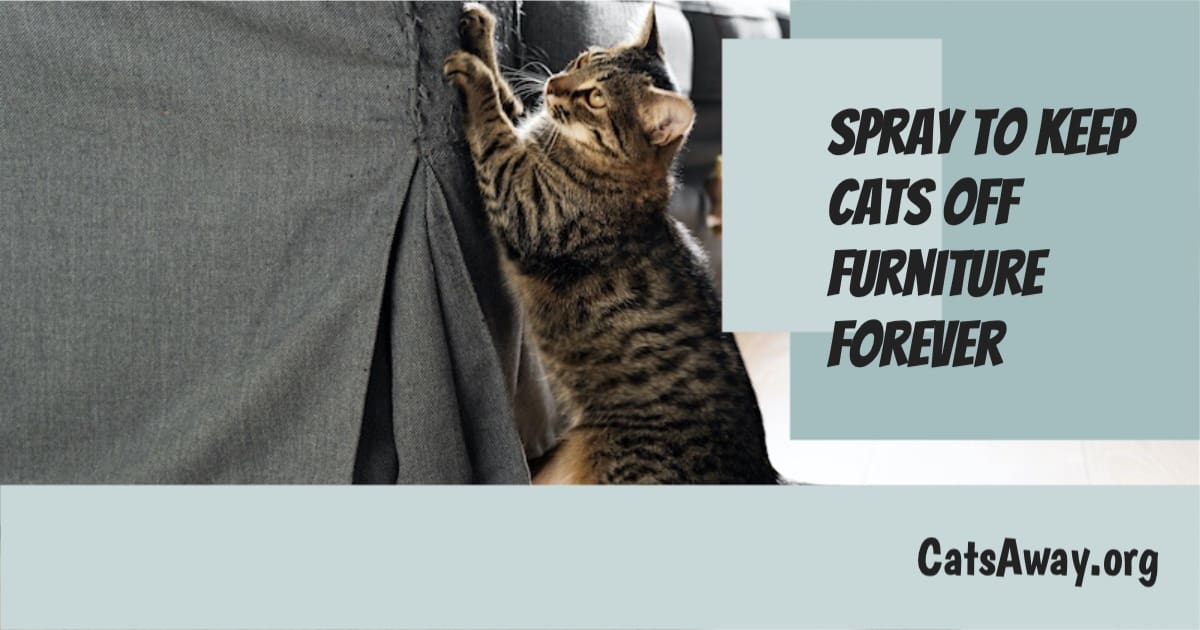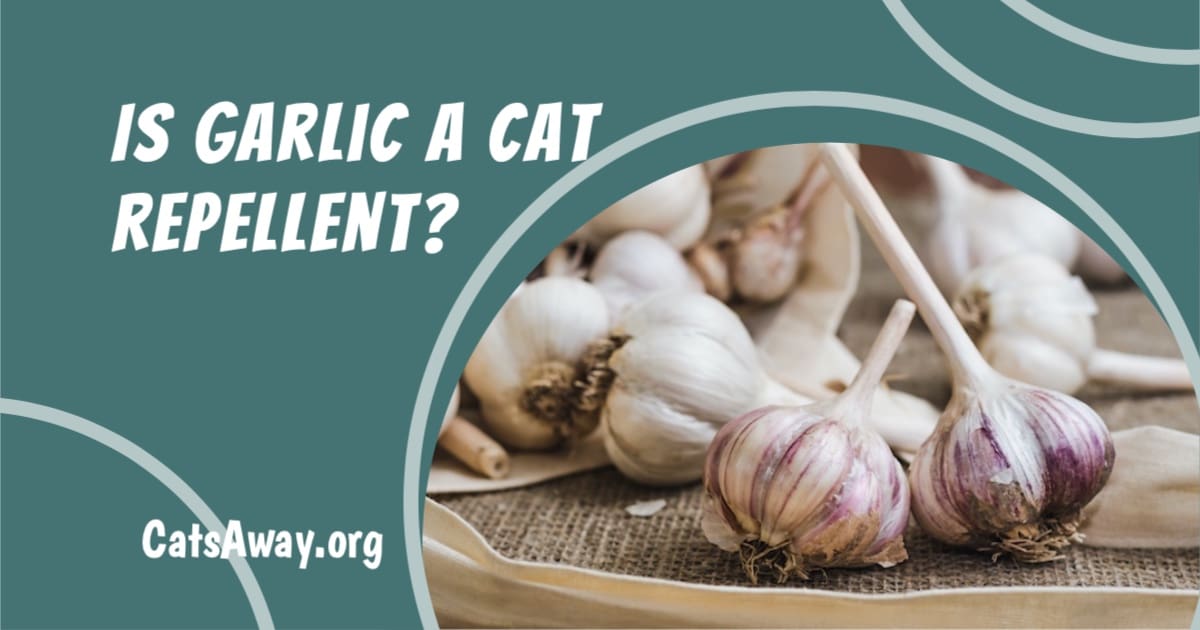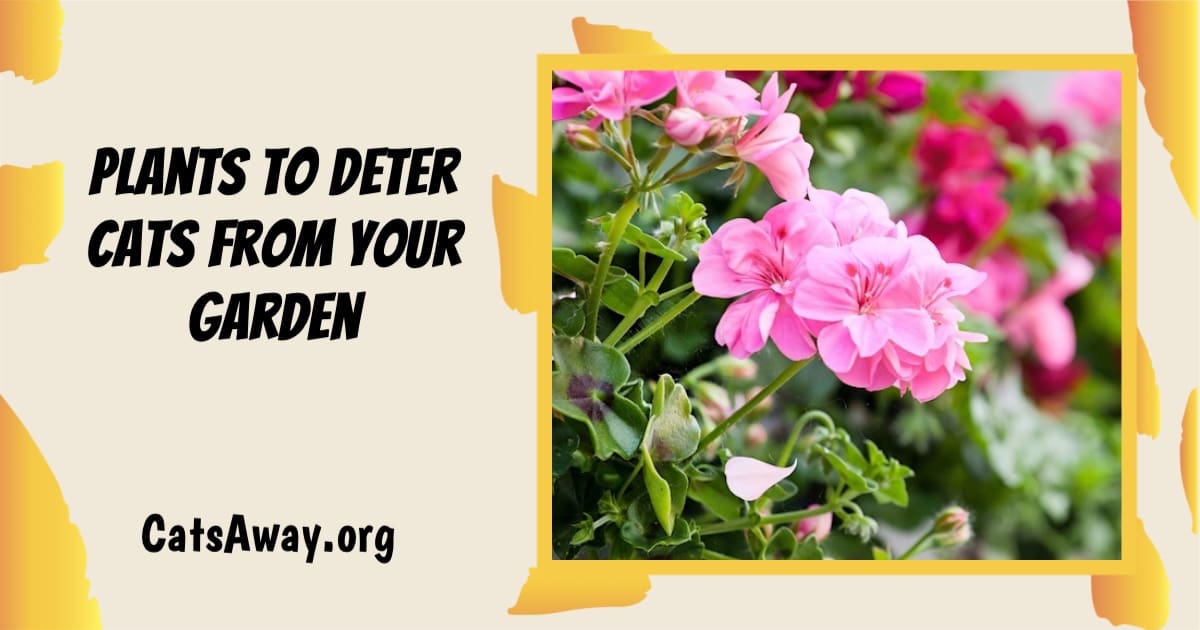There seems to be mixed messages online regarding lavender plants and cats. As lavender is one of my favourite shrubs I though I would do some testing and digging….
Do cats like lavender? While a minority of cats do seem to enjoy the aroma of lavender, the majority of cats do not. The ASPCA list lavender as toxic to both cats and dogs.
I know many of my readers use lavender as a cat repeller so I switched off my CatWatch Cat deterrent and placed a potted lavender on the step. This meant a cat had to brush past the lavender to enter the garden in that corner. Something I hadn’t seen a cat do for a long time….
Does Lavender Keep Cats Away?
That lovely aroma the lavender produces is actually a natural repellent the plant uses to keep insects and grazing animals away so you would expect it to make a good cat repellent.
Based on my own observations though I would have to say lavender is not the best natural cat repellent.
While it is true that the majority of cats seem to dislike the smell of lavender, too many times I watched a cat brush by the plant with not a care in the world.
There are plenty of other plants to deter cats that I would grow before relying on Lavender.
Are Lavender Plants Safe For Cats?
If you have a cat that seems to enjoy the aroma of lavender it should come to no harm brushing against it, smelling it or even sunbathing amongst it.

Can Cats Eat Lavender?
Lavender toxicity can occur in the following ways:
Ingestion of any part of the lavender plant.
Inhalation of essential oils used in an oil burner or reed diffuser or oils applied to the cat.
Inhalation, dermal absorption and ingestion of essential oils applied to skin. While the skin serves to protect the cat’s body from the outside world, anything put on the skin is absorbed into the body and can be ingested when the cat grooms.
Aside from toxicity, lavender essential oils can also irritate the cat’s skin and delicate mucus membranes of the mouth, leading to contact dermatitis and mouth ulcers.
Source: Cat World Australia
Lavender Toxicity
Although the ASPCA say lavender is toxic to cats the plant itself is only mildly toxic.
A cat would have to eat an awful lot of the plant to be at risk of death. Eating too much will result in vomiting and nausea though.
The main toxic ingredient found in lavender is Linalool, the plants own natural insect repellent. Linalool is used commercially as an external flea controller for both cats and dogs.
The real risk of lavender toxicity for cats comes from lavender essential oil.
Lavender essential oil (like all other essential oils) is concentrated which means the enzymes can be up to 2000 times stronger than those of the plants it is extracted from. A cats liver cannot cope with such a large amount of toxins.
Always keep all essential oils away from your cat and other pets.
Related Questions
Are Diffusers Bad For Cats?
Most essential oils pose a toxic risk to cats. A cats liver is short of an essential enzyme which means they have a problem getting rid of certain toxins.
In particular they are sensitive to both phenols and phenolic compounds which are both found in essential oils.
Always leave a door open in the room you are using your diffuser so the cat has an escape route. Keep your essential oils in a high cupboard where prying paws and tongues cannot reach.
Avoid essential oils known to be highly toxic to cats. These include but aren’t limited to:
- Pine oils
- Citrus oils
- Cinnamon oil
- Oil of Wintergreen
- Ylang Ylang oil
- Oil of Birch
- Eucalyptus oil
- Tree Tea oil
- Peppermint oil
- Clove oil
Symptoms of toxic poisoning in cats include tremors, vomiting, drooling, unsteady on their feet, struggling to breathe, feeling cold, low heart rate and liver failure.
Essential oils that are known to cause poisoning in cats include oil of wintergreen, oil of sweet birch, citrus oil (d-limonene), pine oils, Ylang Ylang oil, peppermint oil, cinnamon oil, pennyroyal oil, clove oil, eucalyptus oil, and tea tree oil.
Symptoms that develop depend on the type of oil involved in the exposure and can include drooling, vomiting, tremors, ataxia (wobbliness), respiratory distress, low heart rate, low body temperature, and liver failure.
Are Lavender Plants Safe For Dogs?
Lavender plants can have a calming effect on dogs and are considered safe. Problems such as sickness and diarrhoea can arise if your dog eats too much of the lavender plant.






My Maine Coon LOVES lavender. I use a lavender spray (highly diluted with a carrier) as an insect repellent on my skin. When I apply it, i have to leave house immediately and shower it off when I return or she scratches and claws her way to licking every spot it was applied. Absolute nuisance! My instinct was to keep her away. (I had a cat survive aloe poisoning, but with permanent neurologic problems, so I err on the side of caution). Glad I read your post! I will keep her at a distance, despite her attraction.
I was petting my cat after applying coconut oil and lavender essential oil,, my hands would of still had oil on, will this affect her when she’s grooming? She left when she smelt the lavender on me, I will bear this in mind an thank you for being of help.